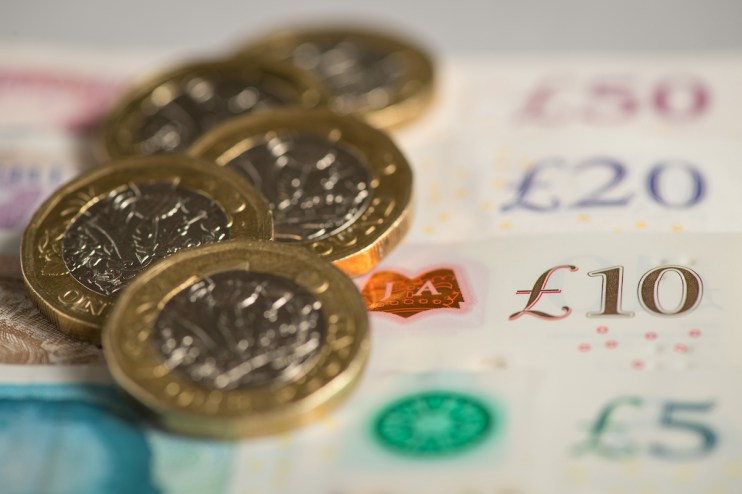Pound surges to strongest level since April last year as traders bet on further rate hikes

The pound has surged to its strongest position in over a year over the past week as traders bet the Bank of England will have to hike rates further and faster than global counterparts.
Since the beginning of the month, the pound has risen from below $1.27 to trade at over $1.31. The last time the pound broke $1.31 was in April last year.
Today it was trading at $1.3120, down 0.05 per cent from its peak yesterday.
The move reflects differing bets on the extent of interest rate hikes that central bankers in the US and UK still have to make. Higher interest rates tend to attract foreign investment, boosting the value of the domestic currency.
“Data from recent days has shown the UK still has a lot of work to do in order to tame inflation, with the economy shrinking by a lot less than expected,” Hargreaves Lansdown’s lead equity analyst Sophie Lund-Yates commented.
“This has culminated in investors looking to benefit from the UK’s widening interest rate advantage over its peers,” she continued.
Data this week showed that US inflation fell to three per cent in June, down from four per cent in May. Core inflation – which strips out volatile food and energy prices – dropped to 4.8 per cent. Both measures came in lower than Wall Street’s expectations.
As a result of the sharply lower inflation, there is mounting speculation that July’s rate rise may be the Fed’s last in the current tightening campaign.
In contrast a series of data releases in the UK have raised the likelihood that the Bank of England will have to hike rates to over 6.5 per cent. Currently the Bank’s base rate stands at five per cent.
ONS data showed that workers’ pay rose 7.3 per cent in the three months to May, beating expectations from both the Bank and the City.
Andrew Bailey, governor of the Bank of England, stressed that such a high rate of wage growth is inconsistent with the Bank’s two per cent inflation target. “The current level of pay increases are not consistent with the inflation target,” he said on Wednesday.
May’s slight contraction in GDP was also smaller than expected, suggesting that the economy is performing stronger than anticipated.
Next week’s inflation figures will be crucial in determining how high rates will have to go in the UK to bring inflation back down to target.
“Sterling is likely to remain elevated until there’s hardened proof that the economy is weakening as a result of the higher rate environment,” Lund-Yates said.